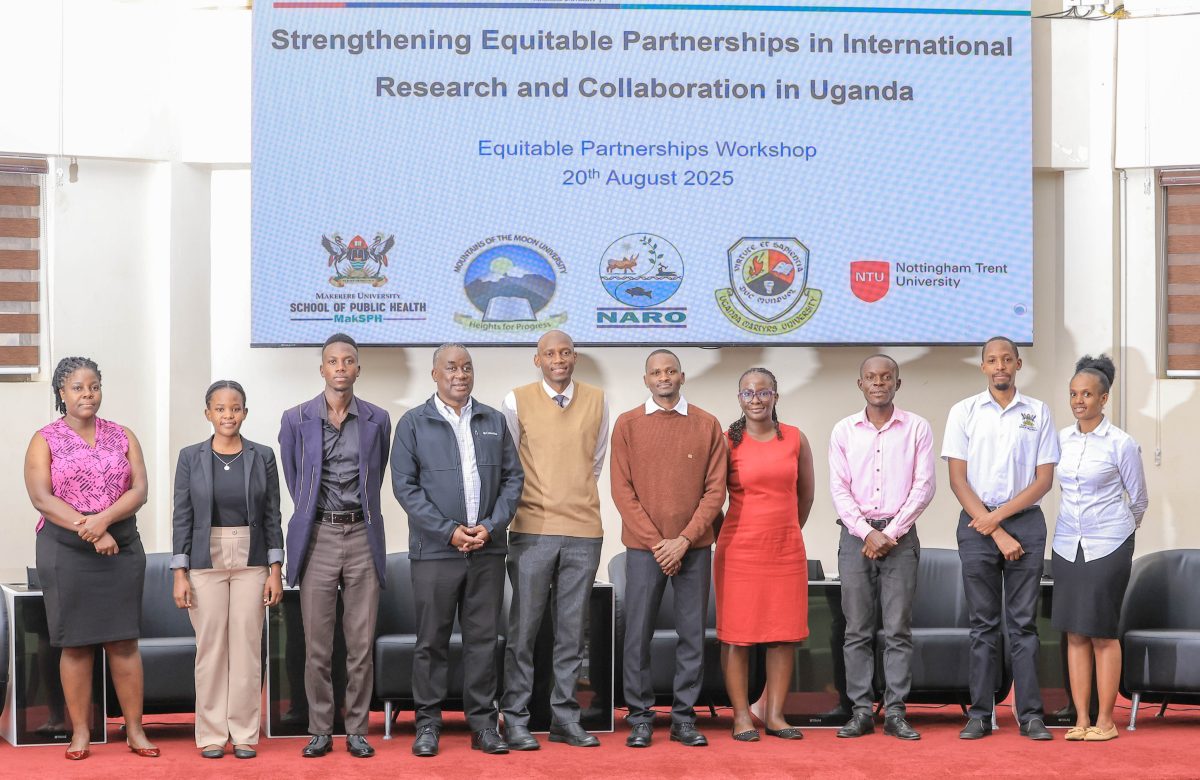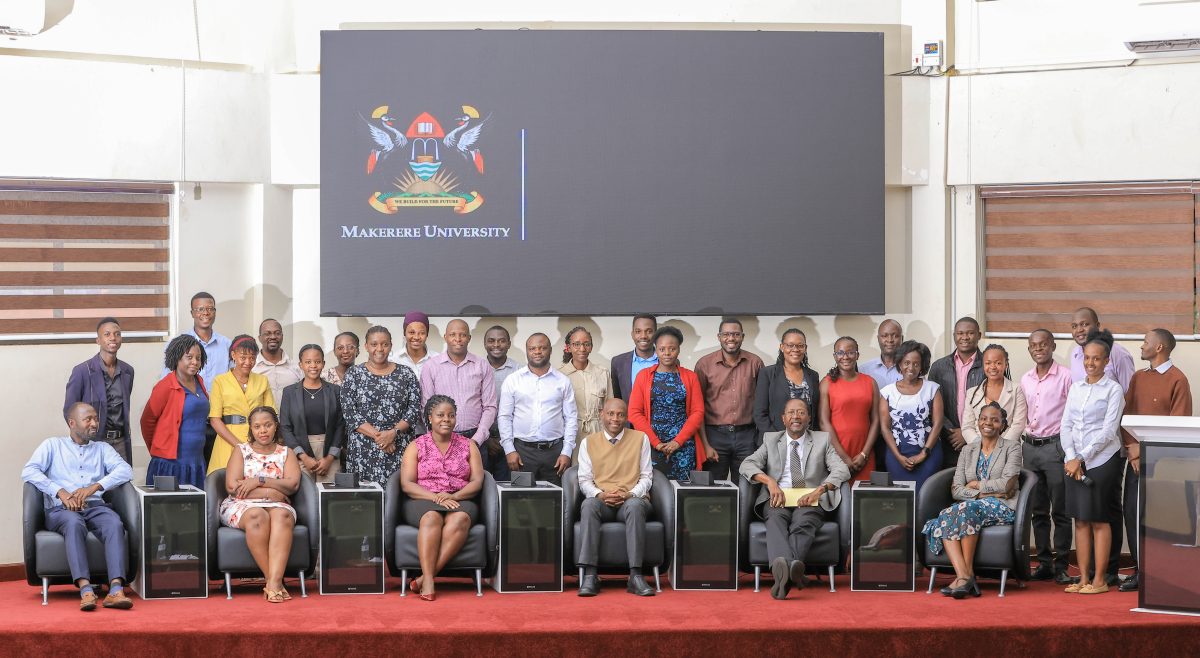On August 20, 2025, Makerere University School of Public Health (MakSPH) convened a timely workshop on Strengthening Equitable Partnerships in International Research Collaboration in Uganda. Held at the MakSPH Auditorium, the event brought together researchers, policymakers, and institutional leaders to reflect on how Uganda, and indeed the wider region, can engage more effectively and derive greater benefit from global research collaborations.
Delivering the keynote address, Prof. David Musoke Serwadda, a Professor Emeritus at Makerere University and a globally recognised HIV researcher and epidemiologist, urged a rethinking of how international research partnerships are structured. A former head of the Institute of Public Health (IPH) and later Dean of the School, serving between 2003 and 2009, Serwadda is also the founding director of the Rakai Health Sciences Programme (RHSP), which is one of Uganda’s most influential research initiatives on HIV. While acknowledging the many benefits Uganda has gained from global research collaborations, he cautioned that too many times, these partnerships remain transactional, shaped by donor priorities, bound to project cycles, and offering limited long-term value to local institutions once projects close.
Prof. Serwadda, himself a globally recognised and well-accomplished researcher, with over four decades of experience and numerous awards for his contributions to science and global health, observed that Ugandan partners are many times included in research projects for visibility rather than substance, often excluded from core roles such as Principal Investigators or from influencing agenda-setting, budget control, and authorship. “Partnerships are not an end in themselves; they exist to help us achieve mutually agreed objectives built on shared responsibility and reciprocal obligations. Too often, Southern institutions are brought into projects late, simply for optics. That is not equitable collaboration,” he insisted.
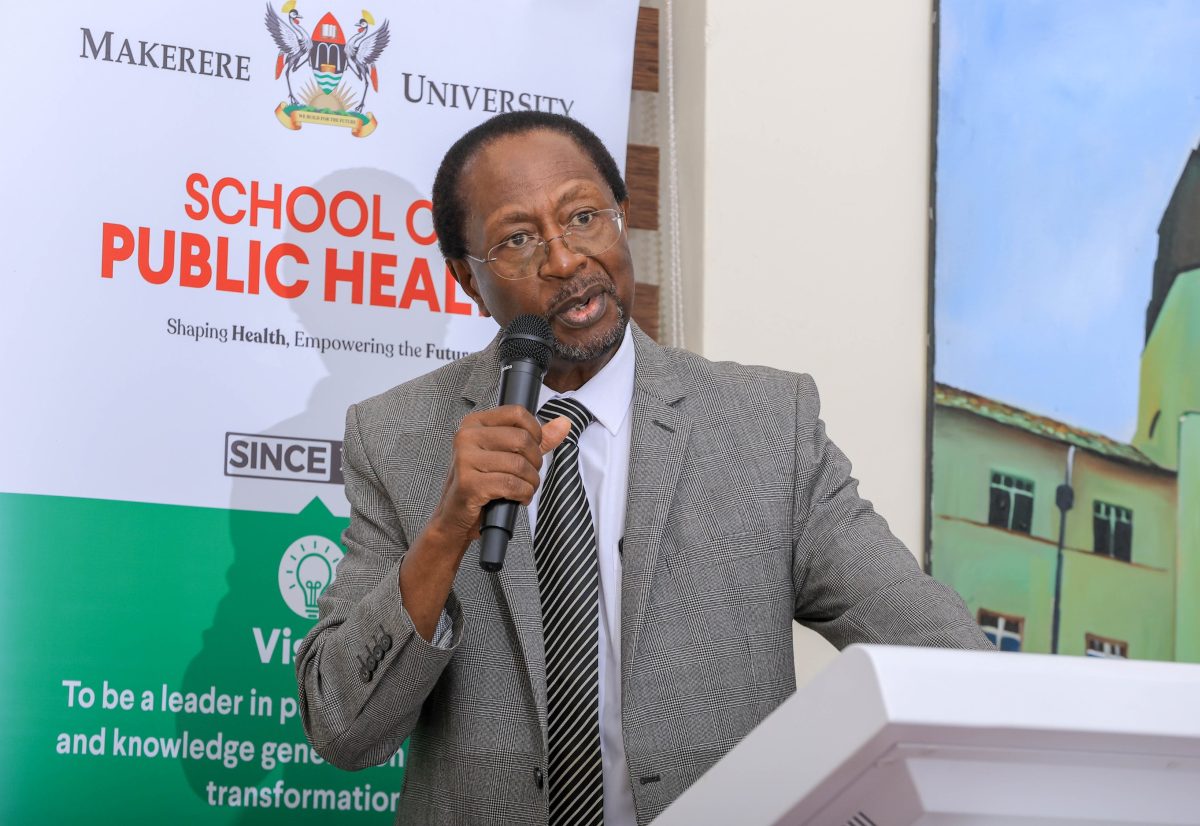
During his talk, he stressed that this imbalance undermines both research quality and sustainability, noting that normally, when local researchers are sidelined, studies often fail to align with national priorities or build capacity that endures. By contrast, partnerships that are grounded in mutual respect, fair resource sharing, co-design, and shared decision-making have the impact of producing knowledge that is globally relevant and locally impactful.
“Equity in partnerships is about fairness, ensuring that all partners, regardless of context, can contribute meaningfully. This also requires responsibility on our part in the Global South. We must insist on involvement from project conception, negotiate fair terms, and strengthen our own systems to manage collaborations effectively,” Prof. Serwadda advised, emphasising that strong institutions, clear strategy, agenda and objectives are key for local institutions to engage in mutually fair and beneficial research collaborations at the global and continental stage.
As Director and later Dean of MakSPH, Prof. David Serwadda spearheaded numerous research collaborations and attracted substantial grants that elevated the School and the University’s global standing. Today, MakSPH is recognised as Makerere University’s flagship unit for its wide-ranging partnerships and robust research management systems. Since its beginnings as a small Department of Preventive Medicine in 1954, through its transformation into the first Institute of Public Health in sub-Saharan Africa in 1975, its elevation to School status in 2007, and most recently its reinstatement as a standalone School with college status within Makerere University in January 2025, a status first granted in 2001, MakSPH has built a 70-year legacy of advancing public health through research, training, and policy engagement.
The School’s evolution, as often couched by its leadership, has been anchored on strategic and strong partnerships. These collaborations, be they local, regional or global, have driven health systems innovation, strengthened capacity, and informed policy, making partnerships the cornerstone of the School’s past achievements and future ambitions. At the celebration of the School’s 70th Anniversary, marked in December 2024, Makerere University Vice Chancellor Prof. Barnabas Nawangwe hailed MakSPH’s research output, community impact, and strong partnerships cultivated throughout the years. The Mak VC cited the School’s pioneering role in the HIV response led by Prof. Serwadda in the 1980s, the establishment of nutrition centres such as the Mwana Mugimu Unit at Mulago Hospital and across Uganda by the late Prof. John Kakitahi in the 1990s with support from Rotary International, and community projects like Kasangati Health Centre along Gayaza Road with support from the Rockefeller Foundation in the late 1950s, which advanced public education on healthy environments and wellness.

“The School of Public Health brings in almost half of all research grants at Makerere University, both in number and value, and these partnerships have been central to tackling Uganda’s public health challenges. From pioneering HIV/AIDS work that shaped global prevention strategies to interventions in maternal health, malaria, and infectious diseases, MakSPH has consistently combined academic excellence with community service. Its leadership during the COVID-19 pandemic further showed its ability to respond to national health emergencies with evidence-based solutions that directly benefit the people,” Prof. Nawangwe said with gratitude for the work done by the School through collaboration.
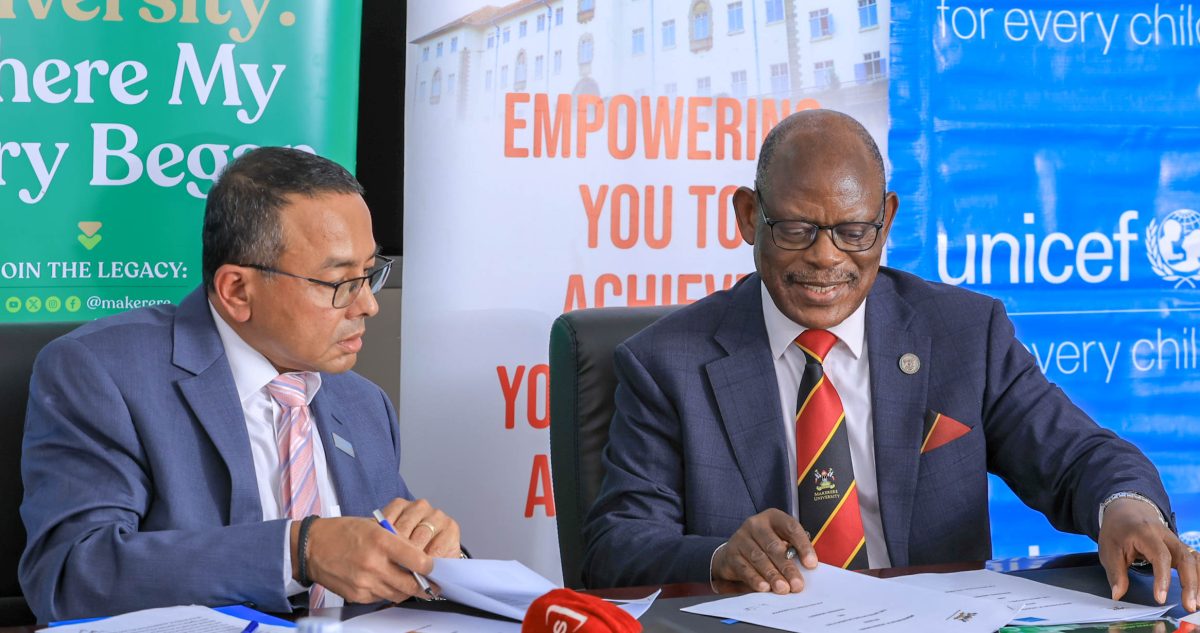
In 2024, the School had over 350 peer-reviewed publications in high-impact international journals as a result of this wide network and partnerships. MakSPH currently maintains a strong mix of North–South and South–South collaborations. Within the continent, the School is actively working in more than 25 countries, often partnering with multiple institutions within individual countries to advance research, capacity building, and policy influence. One such recent collaboration is the Partnership to Enhance Technical Support for Analytical Capacity and Data Use in Eastern & Southern Africa (PERSuADE) Project, funded by the Global Fund. Under PERSuADE, MakSPH, the prime grant recipient, hosted the secretariat led by Dean Prof. Rhoda Wanyenze as Principal Investigator, tasked with overall coordination across 12 countries, while a Steering Committee chaired by Prof. David Serwadda provided oversight.
PERSuADE was implemented in two phases between 2018 and 2023. The project brought together 12 universities and 12 Ministries of Health in East and Southern Africa to strengthen analytical capacity and promote data use in national health programmes, cascading skills to districts and lower facilities. In its second phase, the project trained over 1,500 health staff, including 934 at the sub-national level, in data analysis and use, and generated more than 80 analytical outputs on HIV, TB, and malaria. These informed National Strategic Plans in seven countries and improved programme strategies in all 12. Sixteen in-service staff from seven countries received specialised training in HIV key population surveillance, health information systems, and data use. The project also piloted the Maturity Index Model in five countries, helping ministries track progress in institutionalising data-driven decision-making.
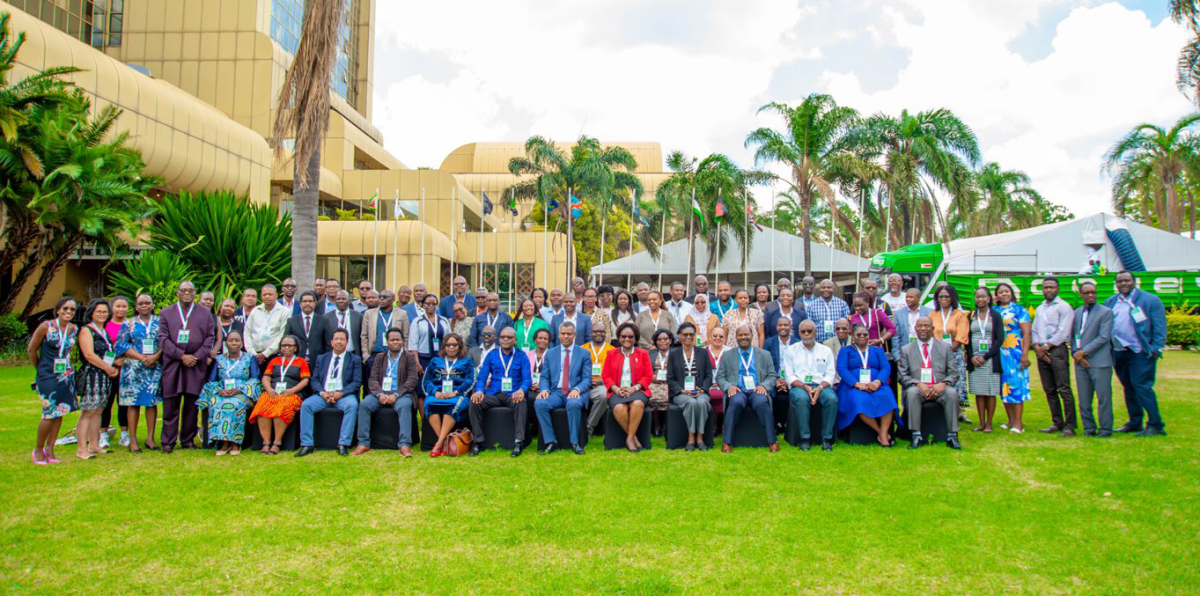
In Uganda, the PERSuADE project was implemented in Kiboga, Buikwe, Kasanda, Mukono, and Mityana districts, selected by the Ministry of Health. According to the Principal Investigator, Prof. Rhoda Wanyenze, strengthening data analysis and use has greatly enhanced the capacity of Ministries of Health to deliver targeted interventions that directly benefit communities. She noted that improved analytical skills at national and subnational levels now enable ministries to identify disparities in HIV, TB, and malaria burdens, while district and facility health workers can use data to strengthen local service delivery. “With better data, districts can plan more efficiently, allocate medicines, and implement tailored prevention campaigns to address specific risks, raise awareness, and reduce new infections,” she said, emphasising the role of equitable collaboration as a key success factor in Uganda and across the continent for this partnership.
Indeed, during a learning visit to Uganda in September 2024, Dr. Estifanos Biru Shargie, Senior Specialist for Monitoring, Evaluation, and Country Analysis at the Global Fund, commended the PERSuADE Project for strengthening local capacity and fostering sustainable health system improvements through South-South partnerships among schools and ministries. “The impact has been significant. In Kiboga, I was impressed by how teams mapped gaps in services and addressed them over four years, using data to inform decisions and monitor progress. Working with Makerere University School of Public Health has been an honour. The School blends academic excellence with practical implementation, backed by strong financial management and a long-standing relationship with the Ministry of Health. Their coordination, networking, and efficiency have been exemplary,” Dr. Shargie said.
Another currently ongoing initiative at the School is the African Leadership and Management Training for Impact in Malaria Eradication (ALAMIME) program, led by MakSPH with ten participating institutions across nine malaria-endemic countries, funded by the Bill & Melinda Gates Foundation. Co-led by Prof. Elizeus Rutebemberwa and Prof. Dosithée Ngo Bebe, ALAMIME is cultivating the leadership Africa needs to defeat malaria by strengthening institutions, building capacity, and fostering regional networks. In 2024 alone, the program trained over 250 participants, nearly half women, from national malaria programs, ministries, and NGOs. Through structured training, alumni-led webinars, and cross-country exchanges, the program has demonstrated how equitable, multi-country partnerships translate investment into sustainable systems and shared momentum toward malaria elimination.
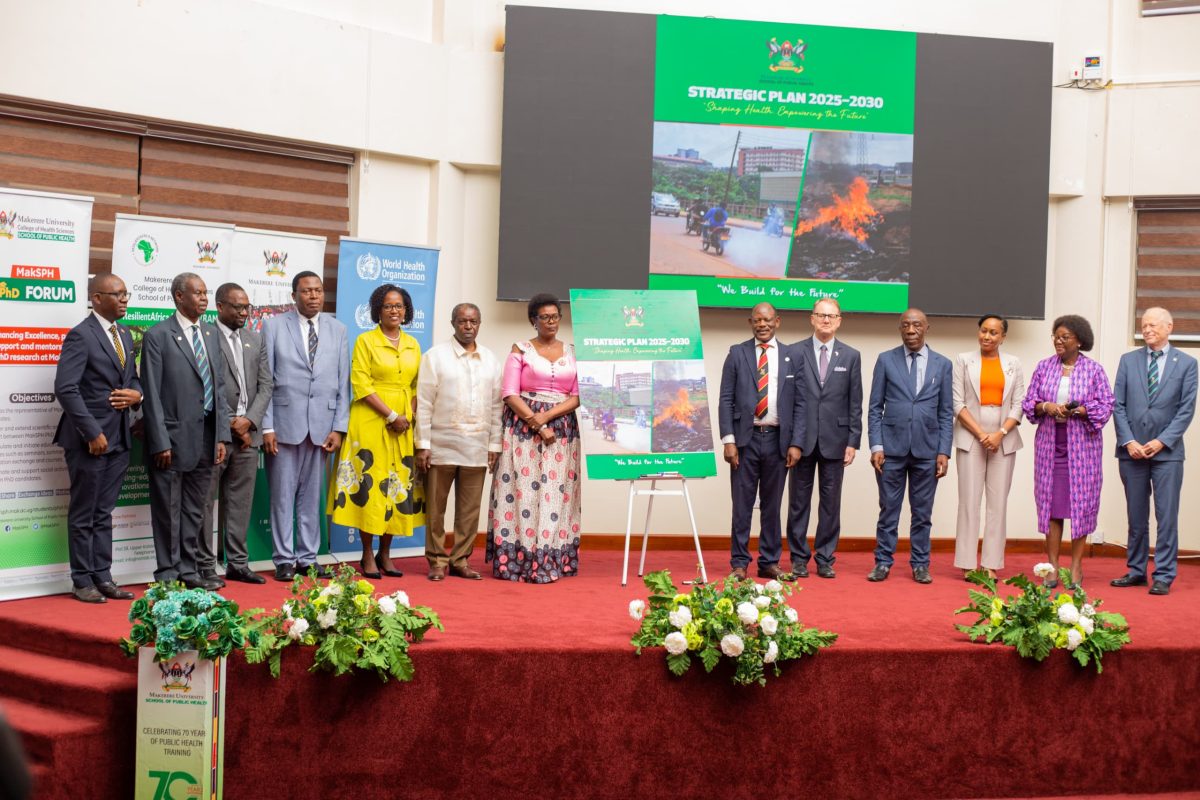
For nearly 15 years now, MakSPH has also hosted the NTU–Mak Partnership, a collaboration between Makerere University and Nottingham Trent University, first conceived in 2010, with Assoc. Prof. David Musoke and Prof. Linda Gibson as the Uganda and UK Co-Leads. One of the key reasons for the success of this partnership is equity, and it has since attracted over £1.4 million in grants, trained more than 900 Village Health Teams in Wakiso District, supported over 350 practitioners in antimicrobial stewardship, and facilitated exchanges for more than 200 students and faculty. It has also equipped community health workers to respond to non-communicable diseases, antimicrobial resistance, and the COVID-19 pandemic, while generating over 30 peer-reviewed publications and convening global platforms such as the first International Community Health Worker Symposium, held in Kampala in 2017.
Dr. Musoke, the Co-Principal Investigator for the project on strengthening equitable research collaborations in Uganda, described the NTU-Mak partnership as a model North–South partnership that has produced both joint scholarship and lasting institutional ties. He noted that its success has inspired wider collaborations, as the current project on equitable partnerships builds on this foundation. Emerging from a British Academy regional workshop in Nairobi in 2024, MakSPH extended its engagement to Mountains of the Moon University (MMU), Uganda Martyrs University (UMU), and the National Agricultural Research Organisation (NARO). Together with Nottingham Trent University, these institutions are now advancing reforms to embed equity in research partnerships across Uganda’s research ecosystem.
